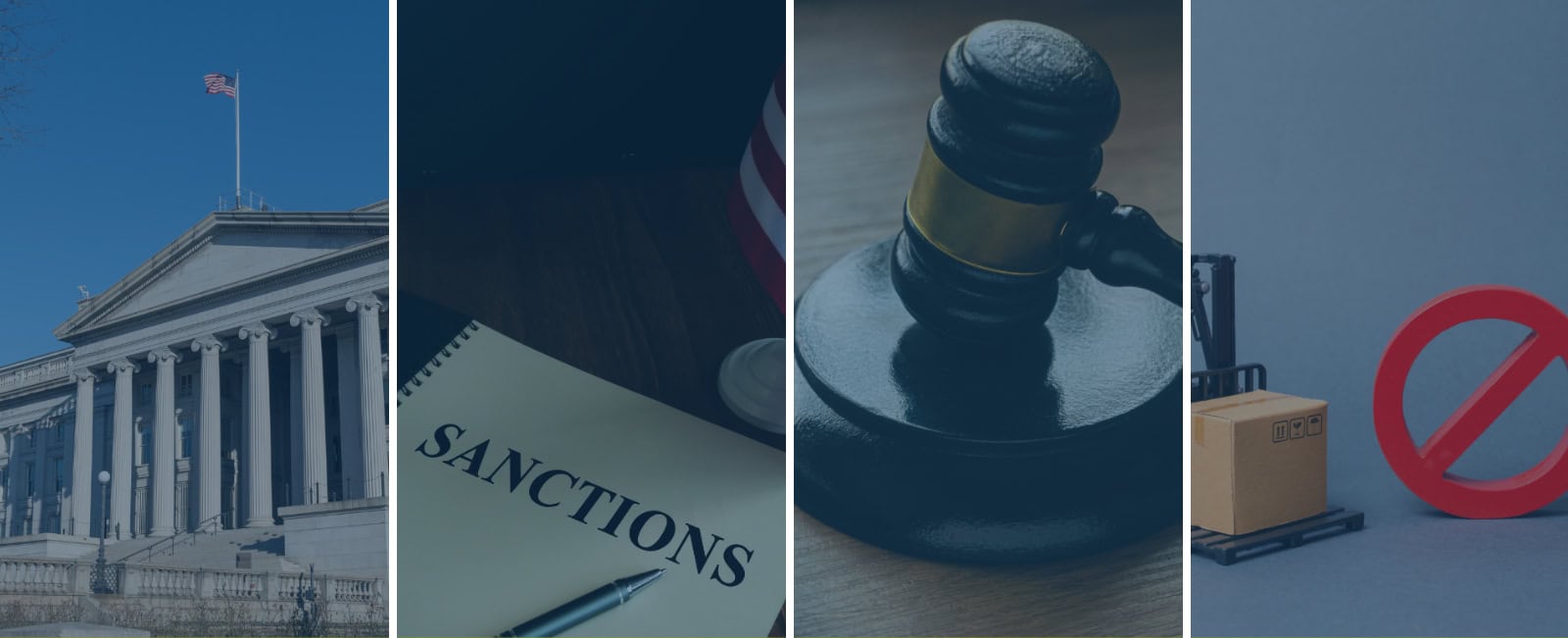CBSA releases January 2024 trade compliance verification priorities (Canada)
CBSA released an updated list of 16 imported goods that will be targeted for potential audits.
Two new goods have been added to CBSA’s January 2024 updated list of audit priorities which are origin of bedding and drapery imported from the United States, and the tariff classification of spent fowl and bags.
Affected businesses need to identify imported goods in their supply chain that may be subject to increased verification activities (also known as audit activities) from the CBSA to make sure that they are meeting their trade compliance obligations and if necessary take corrective action before being notified of a CBSA audit to mitigate punitive interest and potential penalties
Source: https://www.cbsa-asfc.gc.ca/import/verification/menu-eng.html
New reporting requirements for international shipment of goods (Romania)
From 1ST Jan, 2024 a new requirement for certain categories of taxpayers to report all international shipments of goods has been introduced in Romania.
The following taxpayers will be required to report goods in addition to those considered as having a high risk:
- The importer mentioned on the customs import declaration for imports
- The recipient in Romania, in the case of intra-Community acquisitions of goods
- The exporter mentioned on the customs import declaration for exports
- The supplier in Romania, in the case of intra-Community supplies of goods
- The warehouse keeper, in the case of goods subject to intra-Community transactions in transit, both for goods unloaded on Romanian territory for storage or for the formation of a new consignment of one or more consignments of goods, and for goods loaded after storage or after the formation of a new consignment in Romania of one or more consignments of goods
The legislation also introduces a new requirement for transport operators to confirm the transfer of the current positioning data of the transport vehicle throughout the journey of the goods being monitored by the RO e-Transport System. Consequently, the road transport operator is required to equip transport vehicles with telecommunication terminal devices using satellite positioning and data transmission technologies.
Source: Government Emergency Ordinance 115/2023—published in the Official Journal of Romania No 1139 of 15 December 2023
Test Concerning Entry of Section 321 Low-Value Shipments Through the Automated Commercial Environment (ACE) (also known as Entry Type 86); Republication with Modifications)( United States)
This document republishes with modifications and supersedes a U.S. Customs and Border Protection (CBP) notice published in the Federal Register on August 13, 2019, announcing a test to allow certain low-value shipments, including those shipments subject to Partner Government Agency (PGA) data requirements, to be entered by filing a new type of informal entry electronically in the Automated Commercial Environment (ACE). The test is known as the ACE Entry Type 86 Test. This document modifies the ACE Entry Type 86 Test to clarify the waiver of certain regulations and consequences of misconduct by test participants. In addition, this document makes minor technical changes to the original notice
Source: https://public-inspection.federalregister.gov/2024-00698.pdf
Free Trade Agreement between the GCC and the Republic of South Korea
Signing of a free trade agreement between the Gulf Cooperation Council (GCC) and the Republic of South Korea is a historic step towards achieving Gulf economic integration and enhancing economic and trade relations between the two sides.
This came during the signing by His Excellency and His Excellency Mr. Ahn Dukgeung, Minister of Trade of the Republic of South Korea, of the joint statement concluding the negotiations and reaching the Free Trade Agreement between the GCC and the Republic of South Korea, on Thursday, December 28, 2023, in the Republic of South Korea’s capital, Seoul.
His Excellency mentioned that this signing comes as a result of negotiations that lasted for five negotiating rounds, reflecting the genuine mutual desire to enhance the strategic partnership and economic cooperation between the two sides.
He further added that this agreement is expected to contribute to increasing bilateral trade volume and enhancing trade in goods and services between the two parties, as well as promoting economic diversification plans in the Council member countries and South Korea.
He emphasised that the agreement included 18 chapters, covering trade in goods, services, government procurement, digital trade, cooperation in the field of small and medium-sized enterprises, customs procedures, intellectual property, and other chapters and topics of mutual interest.
Source: https://www.gcc-sg.org/ar-sa/MediaCenter/NewsCooperation/News/Pages/NEWS-2023-12-28-3.aspx
U.S. guidance concerning Russia-related executive order
The U.S. Department of the Treasury’s Office of Foreign Assets Control (OFAC) released for publication in the Federal Register Russia-related general licenses (GLs):
GL 83—”Authorizing certain transactions related to imports of certain categories of fish, seafood, and preparations thereof prohibited by Executive Order 14068”
GL 84—”Authorizing transactions related to closing a correspondent or payable-through account”
GL 85—“Authorizing the wind down of transactions and the closure of accounts involving Expobank Joint Stock Company”
The issuance of these GLs is pursuant to a Russia-related executive order “Taking additional steps with respect to the Russian Federation’s harmful activities” issued in December 2023.
Source: https://public-inspection.federalregister.gov/2024-00734.pdf
Treasury Targets Price Cap Violation-Linked Shipping Company
The U.S. Department of the Treasury’s Office of Foreign Assets Control (OFAC) is taking its first oil price cap enforcement action of 2024, targeting a shipping company linked to a price cap violation.
The United States is part of an international coalition of countries (the Price Cap Coalition), including the G7, the European Union, and Australia, that have committed to prohibit the import of crude oil and petroleum products of Russian Federation origin. These countries, home to many best-in-class financial and professional services, have also committed to restrict a broad range of services related to the maritime transport of crude oil and petroleum products of Russian Federation origin (“Russian oil”)—unless that Russian oil is bought and sold at or below the specific price caps established by the Coalition or is authorized by a license. This policy is known as the “price cap.” The price cap is intended to maintain a reliable supply of crude oil and petroleum products to the global market while reducing the revenues the Russian Federation earns from oil after its own war of choice against Ukraine inflated global energy prices.
United Arab Emirates-based shipping company Hennesea Holdings Limited (Hennesea) is the ultimate owner of 18 vessels, including the HS Atlantica, which OFAC previously identified as having engaged in the transport of crude oil of Russian Federation origin priced above the $60 per barrel price cap while using a covered U.S.-based provider after the price cap policy came into effect.
As a result of today’s action, all property and interests in property of the person above that are in the United States or in the possession or control of U.S. persons are blocked and must be reported to OFAC. In addition, any entities that are owned, directly or indirectly, 50 percent or more by one or more blocked persons are also blocked
Source: https://public-inspection.federalregister.gov/2024-00734.pdf


